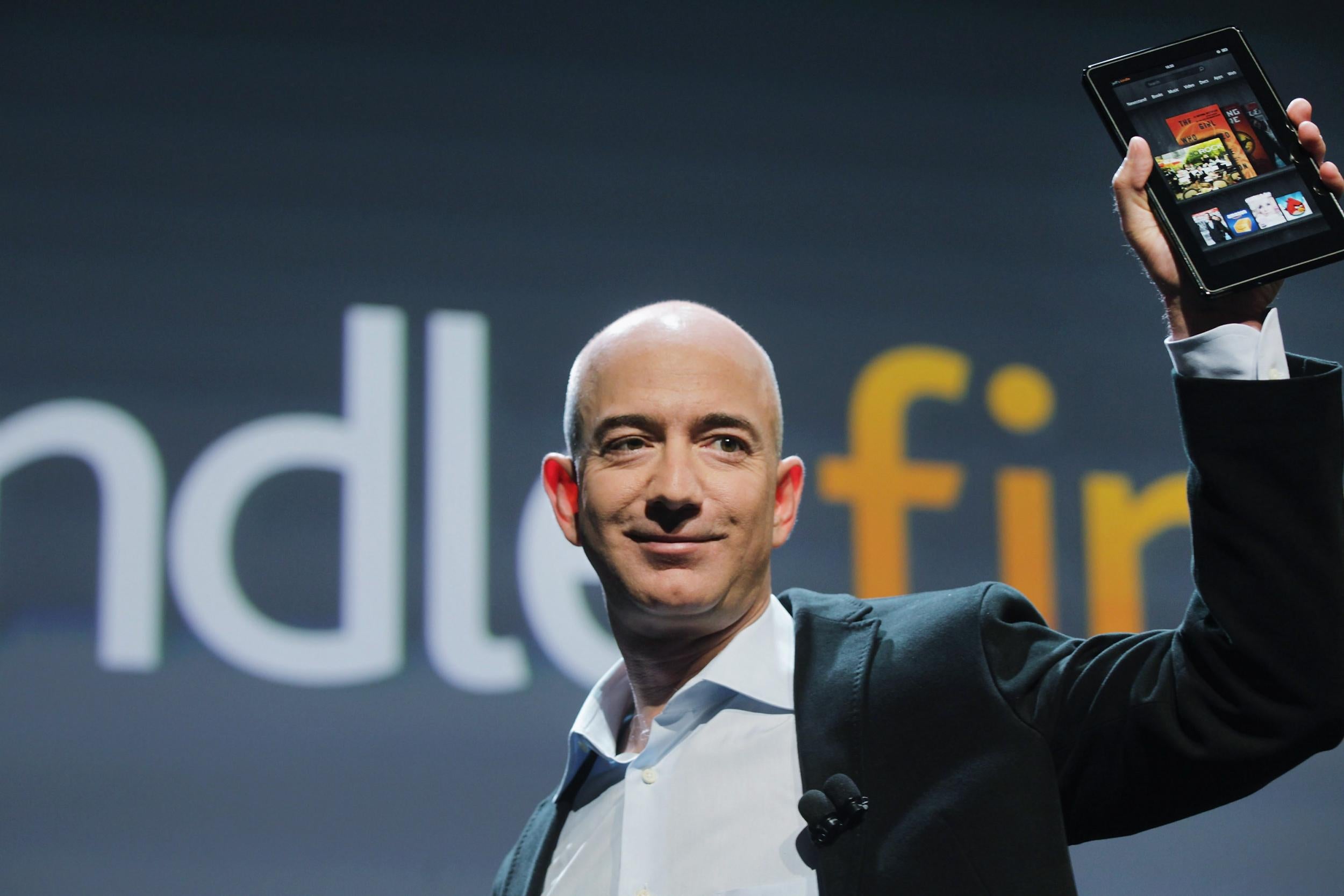Jeff Bezos knows what Trump would do with his money. That's why he'd rather start a climate change fund than pay more tax
In a world like ours, philanthropy is increasingly the solution — not the problem


Despite being a director of the Independent, I fully support and hope for the success of any model for preserving quality journalism in an age when newspapers have become just another asset stripping target for venture capitalists (as the McClatchy bankruptcy this week illustrates). The Guardian trust model is one such critical model and once I finish reading the Independent, I often turn to the Guardian to see their take on things. This week, the newspaper ran two columns that were critical of Jeff Bezos, whom I view as a mainstay of quality journalism and constructive philanthropy.
Stefan Stern, in his column, “Why doesn’t Jeff Bezos pay more tax instead of launching a $10bn green fund?” concedes that spending $10 billion on climate change may do some good, but takes Bezos to task for allocation of Amazon’s tax liability among various countries to minimize tax as permitted by the array of tax treaties and corporate tax provisions. A few days later, Victor Pickard’s column “American journalism is dying. Its survival requires public funds” picked up on the bankruptcy of McClatchy and insisted that public funding should be “non-negotiable.”
We live in a world where most progressive purposes are starved by governments and philanthropy is critic to accomplishing important public purposes. Give me Jeff Bezos over Donald Trump any day. Climate change, of course, is the most important challenge and the most important threat to the planet and to our species. Ten billion dollars is a huge amount of money. While one can argue that preventing climate change is fundamentally a public and not a private obligation, Bezos lives in a country where the President of the United States, the country that has contributed more to climate disruption than any in history, believes that climate change is a hoax. He does not believe that it is the role of the most prosperous country in the world to contribute to a solving this Herculean peril.
For Trump, it is reflexively easier to deny a hard problem (“I love coal”) than take steps to try to solve it when the solution may hit the bottom line of his financial backers or upset his base. Climate change, moreover, is a problem which requires global solutions, presenting huge geopolitical and economic challenges.
Developing countries with limited resources wonder why they should be denied the ability to burn coal or other dirty fuel sources to enable their development when developed countries created the problem in the first place. And it is notoriously difficult to avoid the free-rider problem when a challenge crosses borders and each country thinks someone else will or should pay. Meanwhile, Trump has built a business and political career in trying to stick others with the bill.
In a globalized, capitalist world, huge pools of philanthropic capital have the means, the will and the intellectual infrastructure to solve problems that governments and markets have not — and in all likelihood will not until it is too late. I say bravo to Jeff Bezos for taking on this challenge and I hope it motivates others. Some day, I hope, we will thank Bezos and others for finding solutions to keep our planet habitable.
Of course, Jeff Bezos could volunteer to have Amazon pay taxes that governments do not require that he pay. If governments have the will to increase taxes, and to formulate a coherent, cooperative rule for international taxation, then no doubt, Amazon could and should pay more. I would expect that any contribution that Amazon or Jeff Bezos might make to the Trump fiscal piggybank to fund a wall or separate children or leverage allies for political advantage would not be as valuable as a $10 billion green fund.
Bezos is also an important figure in responding to Victor Pickel’s call for government funding of journalism. Journalism indeed has problems as a profit-making business. Bezos bought the Washington Post, infused millions of dollars into its operations, especially its newsroom, and has revitalized it as one of the best newspapers in the world, breaking major stories on a daily basis. He does not need to turn a major profit and I doubt that he does. Journalism supported by philanthropists or by wealthy people who try to break even or do a bit better is a model that can work and does work — at the Guardian, the Post and at my own newspaper, the Independent.
Calling for government funding of journalism, however, is both naïve and dangerous. First, neither the US nor the UK governments are going to make such investments. Not going to happen. Journalism, in the words of our President, is “an enemy of the people.” Trump and Secretary of State Pompeo attacked a National Public Radio journalist, as well as the whole idea of public television and radio, because an NPR journalist asked fair questions about Ukraine (and found it on a map).
Boris Johnson wants to eliminate the license fee for the BBC. Trump loves Fox News (except when it questions him in the slightest) and its more ultra-right variants. If any outlet were to receive public support in a Trump administration, it would be Breitbart long before it was the Guardian. One could argue for firewalls and safeguards, but we have seen that safeguards can be ignored. Governments hate criticism and it is the core function of journalism to uncover governmental wrongdoing. Government funding of journalism is a non-starter and a bad idea .
The Guardian has a model that works with support by a charitable trust so long as the trust is sufficient to maintain its support into the future. Philanthropy can also be a critical component of solutions to large problems in society, including supporting quality journalism. In an age when neo-liberalism combines with right-wing populism to threaten journalism, the environment and a host of other problems, philanthropy is an important part of the solution, not the problem.
Join our commenting forum
Join thought-provoking conversations, follow other Independent readers and see their replies
Comments
Bookmark popover
Removed from bookmarks